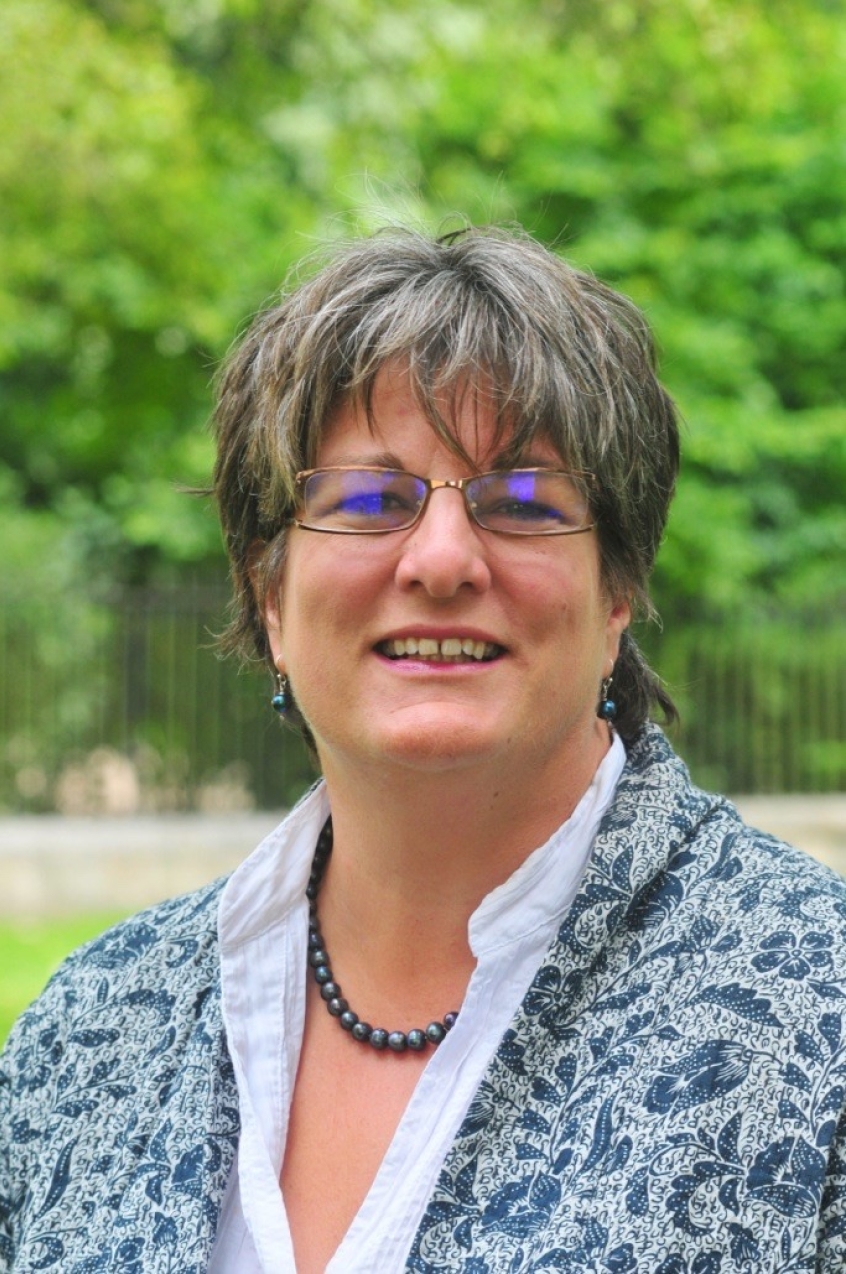Jayne Ozanne is one of the doughtiest campaigners for LGBT people in the church today – particularly in the Church of England. As such she's been a thorn in the side of bishops and synods for several years. She has consistently sought to move the dial further and further in the direction of the full acceptance of gay and lesbian people in the life of the Church, and has suffered for it.

It's not, however, her campaigning that's caused her the most distress, but something far more fundamental. She knew for years that she was attracted to women, not to men. Like Vicky Beeching, whose account of her own struggles has also just been published, she had been brought up believing this was wrong. Much of her book Just Love: A journey of self-acceptance is about her journey to the point of concluding that she could no longer deny who she was – and that far from wanting her to, God would bless her in her desire for a loving and committed relationship with someone of her own gender.
It makes painful reading. Ozanne was an evangelical Christian, firmly convinced that the 'right' thing would be to marry a godly man. That didn't seem to be happening. She fell unhappily in unrequited love with different women. Eventually she became ill – like Beeching, she believes the tensions she was experiencing had turned her body against itself – and entered the Priory clinic. She then moved to another clinic, specialising in addiction – though no one could identify what her 'addiction' was, and the treatment was shatteringly inappropriate. She became convinced that she could be 'healed of homosexual spirits' and spent years believing that she had been.
Her account of falling in love with another woman, unexpectedly and unwillingly, is moving and deeply saddening. She says: 'I felt dirty, unworthy and so very alone. A "woman of God" with a dark secret, that no one else I believe would ever understand. As strange as this may sound, I truly thought that I was the only evangelical Christian who had ever suffered being attracted to someone of the same sex. I was back in hell, and this time I knew there was no way out.'
One of the complicating factors for her was she had become quite a high-profile figure in the Anglican world. A Cambridge graduate, she had had a high-flying career in marketing since being recruited by Proctor and Gamble, working in several different countries and with a glittering future ahead of her. She'd been a member of the Archbishops' Council, recruited by George Carey, and had been a driving force behind attempts to reverse the seemingly inexorable decline of the CofE. She'd also worked with Canon Andrew White in his efforts to mediate peace in the Middle East, and with Baroness Cox, the parliamentarian and charity founder. She was widely respected and sought-after, and known as an evangelical Christian.
However, attempts to 'deliver' her from homosexuality failed. She began, with the help of an Anglican priest, to explore a completely novel idea – that perhaps God did not, after all, condemn people like her as she'd always assumed. After another episode of stress-related illness and what she felt was an abandonment by the church, she came to her conclusion: 'I reasoned that if God truly loved me then he would forgive me even if I was walking away from his plan for me. I reckoned he knew how hard I had tried and that even if I had failed the test he had set, he must surely someone continue to love me and forgive me.'

Her public 'coming out' involved writing personal letters to everyone she felt ought to know. However, it wasn't until some time later, in 2015, that the news was broken in an interview with The Times' Ruth Gledhill. A year later Ozanne was back on the Church of England's General Synod, launching a campaign for the full inclusion of LGBT people in the life of the Church.
Just Love is an autobiography, and it's fair to say that she doesn't engage with the theological arguments for and against same-sex relationships – it's not that kind of book. Rather, it's a cry from the heart: 'This is what it was like for me.' She is driven by a sense of justice, and by a conviction – based on her own experience – that denying LGBT people the chance to express their feelings and desires on equal terms with heterosexual people is deeply damaging at every level.
As such, this is a contribution to the debate rather than the last word – but it's a vital contribution. Unless they hear the voices of those who have suffered as she has, those who take a traditional position on sexuality lack an essential perspective on human sexuality, and they can't expect to be heard with much respect. Like what she says or not, Jayne Ozanne's is a significant voice in the CofE today.
Just Love: A journey of self-acceptance by Jayne Ozanne is published by DLT, price £12.99.













